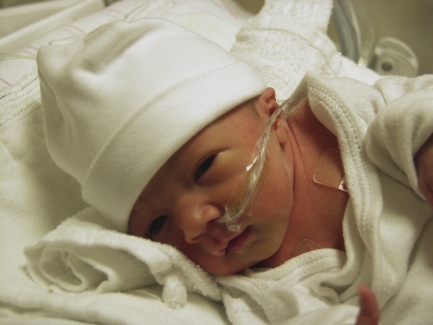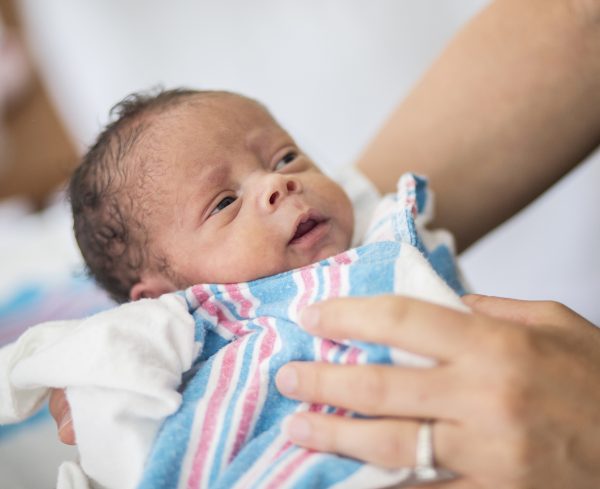Save $50 with coupon code SPRING25 at checkout! Cannot be combined with other offers.
Live Webinar for Pediatric Therapists. Complete both sessions for 15 Contact Hours (1.5 CEUs)
April 25 and 26, 2025
9:40 am EST • 8:40 am CST • 7:40 am MST • 6:40 am PST (US)
EARLY BIRD RATE!
Register by March 14, 2025 to receive $20 off your registration. Enter coupon code EARLYBIRD20 at checkout to receive the discount. Must be used at time of registration.
COURSE DESCRIPTION:
This intermediate-advanced course will focus on the cardiopulmonary implications for the premature or medically-complex infant as related to physiological stability, evolving motor control, sensory stability, and transition to oral motor skills that support feeding. It will focus on advancing the critical reasoning skills of the neonatal therapist to support the infant’s ability to obtain foundational motor and sensory skills. These skills include the ability of the infant to cough, produce audible phonation, oral motor skills, swallow skills, trunk facilitation, gestational age-appropriate positioning/handling to support the emergence of gross motor skills for postural stability. You will learn movement analysis skills (via lab time and video presentations) to assess breathing patterns, facilitation techniques to support trunk development, positioning strategies to support chest wall development, and feeding techniques to maximize postural control. We will discuss current literature as relevant to this topic and apply a systems theory approach for case study treatment planning.
LEARNING OBJECTIVES:
- Integrate chest wall movement assessment and treatment strategies to maximize infant outcomes
- Utilize developmental positioning and handling interventions to reduce chest wall deformities
- Assess the effects of invasive and non-invasive pulmonary support to the facial and oral structures as related to non-nutritive sucking and oral feeding progression
- Incorporate postural support with positioning and handling of infants for improved chest wall mobility during oral feeding
- Choose an appropriate individualized care plan for an infant with compromised cardiopulmonary systems, using a systems approach
AUDIENCE:
This course is recommended for intermediate to advanced neonatal therapists, PTs, PTAs, OTs, OTAs, and SLPs working with infants in the Neonatal Intensive Care Unit.
PARTICIPANT REQUIREMENT:
In order to maximize the learning experience during lab time, each participant needs to bring a soft body doll. The ideal size would be 10-15”, but any soft body doll will work.
Holly Schifsky, OTR/L, CNT, NTMTC, CBIS, has worked in pediatrics for the past 28 years with the past 17 years in a level IV NICU. She is a Certified Neonatal Therapist, Certified Neonatal Touch and Massage Therapist, Certified Brain Injury therapist, a member of National Association of Neonatal Therapists, and has completed 6-month mentorship in infant/child NDT.
She has worked within the NICU and NICU follow-up clinic to maximize patient and family outcomes for the most complex premature and medically-fragile term infants. Holly received her BS in OT from the University of North Dakota. She is a faculty member for the Neonatal Touch and Massage certification; and Manuel Edema Mobilization training. She is the recipient of the National Association of Neonatal Therapists Clinical Excellence award in 2018, due to her clinical expertise and dedication to advancing the therapeutic interventions for NICU infants with cardiopulmonary conditions.
Financial Disclosures: Holly Schifsky receives a speaking fee when she teaches for ERI.
Non-Financial Disclosures: Holly Schifsky has no relevant nonfinancial relationships to disclose.
Amazing course! I thought this course was robust and built on foundational concepts incredibly well to translate into function. Holly is a gifted teacher and presenter, clearly very knowledgeable and up to date on current research that she integrates into her patient care. This population is so fragile and I feel like I now have a much more solid foundation and more real tools to integrate into my treatments with infants. -Carly S., OTR
As a new therapist to the NICU, I was not confident in my knowledge of specific ways I could actually have an effect on premie development other than neuro protection and positioning. With Holly's course, you get the foundational knowledge and examples of specific techniques to help premies in their development to affect their breathing patterns, oral motor skills, and more. It is a course chock full of information and demonstrations! You get so much more than you expect from it! -Laura T., OTR
Holly is a walking medical encyclopedia. Her immense knowledge blew me away! She shows you practical techniques that you can put into your daily treatment the minute you return to the clinic. I love that she explains why she is doing a specific technique, or stimulating a certain muscle group; and what you want to see as a result of the facilitation. Makes so much sense when you view it that way. Definitely how the brain of a skilled therapist works! A must course for every CNT or Neonatal Therapist. I only wish I learned these techniques 17 years ago! -Gail L., OTR/CNT/CEIM
VENUE LOCATION MAP
Click image to access Google Maps.
Continuing Education Hours for disciplines not listed below: 15 contact hours (1.5 CEUs). Intermediate level. License #______________.
Education Resources Inc. is an AOTA Approved Provider of professional development. Course approval ID# 087030. This Distance Learning-Interactive Course is offered at 15 Contact Hours (1.5 CEUs). Intermediate level, OT Service Delivery. AOTA does not endorse specific course content, products, or clinical procedures. This course can be used toward your NBCOT renewal requirements for 15 units. Provider for the FL Occupational Therapy Association CE Broker for 18 CE Hours - approval #20-975584. ASHA CEUs are awarded by the ASHA CE Registry upon receipt of the CEU Participant Form from the ASHA. Approved CE Provider for up to 1.5 CEU’s. Approved by the FL Physical Therapy Association for 18 CE Hours - approval #CE25-975584. This course has been approved by the MD State Board of Physical Therapy Examiners for 15 Continuing Education Hours. Approved by the MN Board of Physical Therapy for 15 CE Hours, #12326. Approval #2211-31 by the NJ State Board of Physical Therapy Examiners for 15 CEC's. Approved sponsor by the State of IL Department of Financial and Professional Regulation for Physical Therapy for 18 contact hours. The Illinois Early Intervention Training Program has approved this event for 15.5 hours of EI credential credit in the area of Intervention. Approved provider by the NY State Board of Physical Therapy for 18 contact hours (1.8 CEUs). Education Resources is an approved agency by the PT Board of CA for 15 contact hours. This activity is provided by the TX Board of PT Examiners accredited provider #2210017TX for 15 CCUs and meets continuing competence requirements for PTs and PTAs licensure renewal in TX. Approved Provider for OK State Board of Medical Licensure & Supervision #BAP202310003. This course meets the criteria for 15 hours that can be applied toward the Neonatal Therapy National Certification. 15 hours of this course qualify towards the discipline-specific hours for the 20-hour requirement for NDTA re-certification. They do NOT qualify towards the 8-hour NDTA Instructor requirement for re-certification.
Education Resources Inc., 266 Main Street, Suite 12, Medfield, MA 02052 508-359-6533






